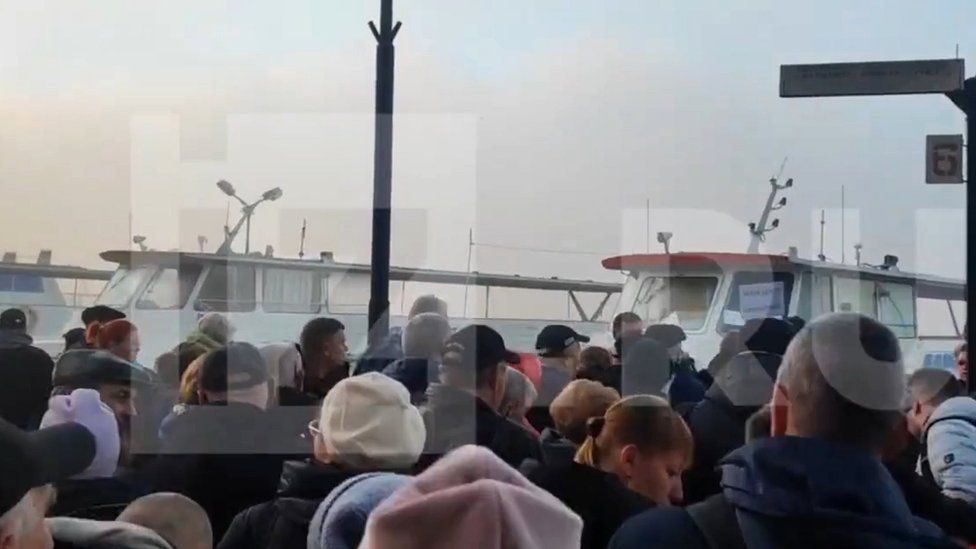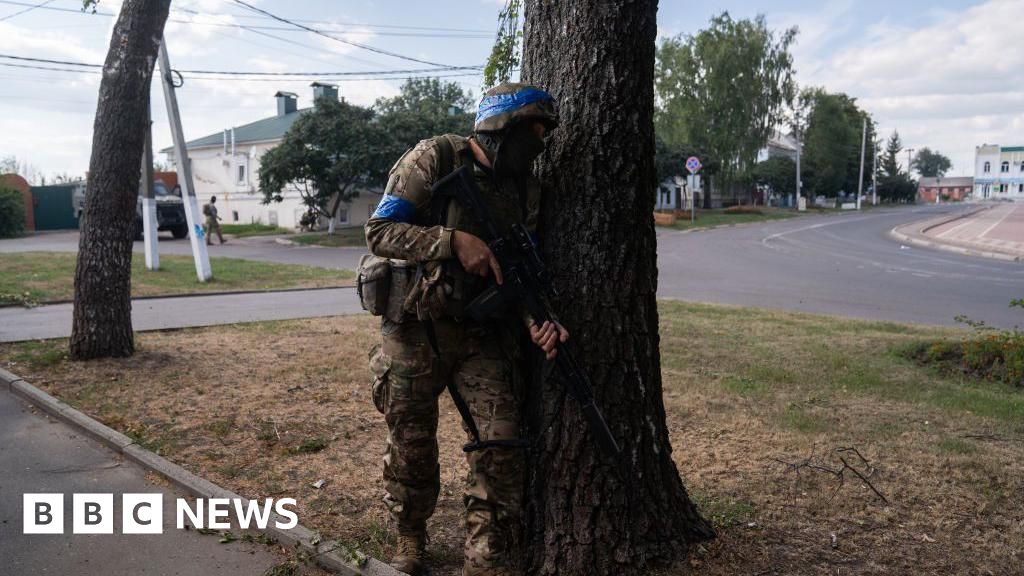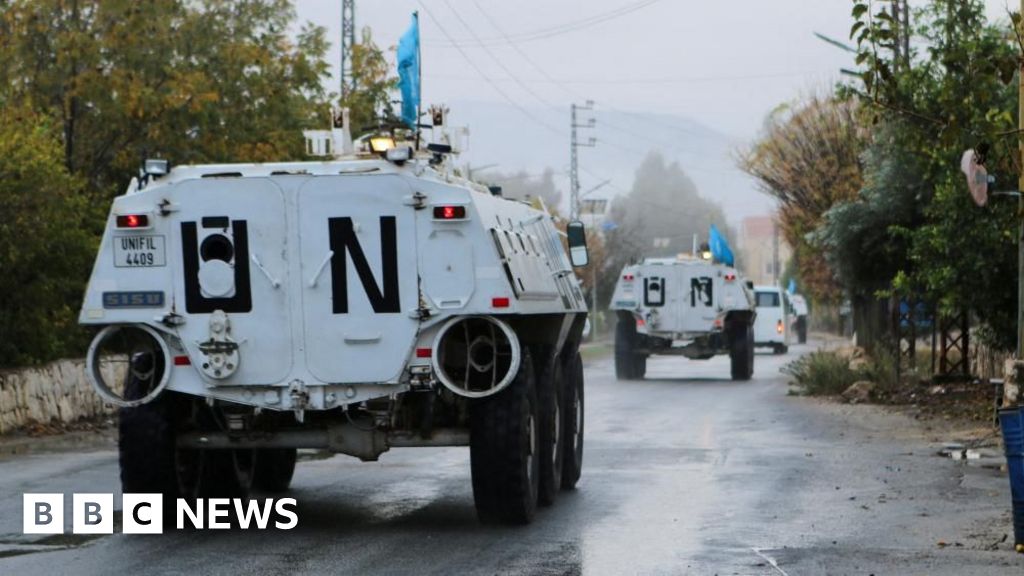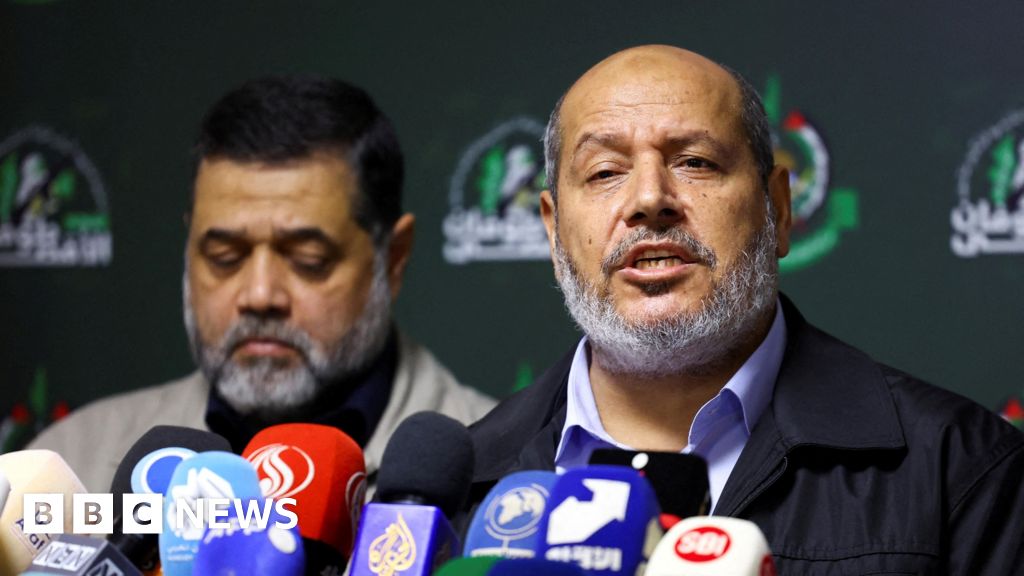ARTICLE AD BOX
 Image source, Izvestia
Image source, Izvestia
Russia's Izvestia website showed footage of people gathering to cross the Dnieper river
Thousands of Kherson residents are being moved out of the southern region as Ukraine tries to take it back, its Moscow-installed leader has said.
Vladimir Saldo said 50-60,000 civilians would leave four towns on the west bank of the Dnieper river, but Russian troops would remain behind and fight to the death to defend it.
In response, Kyiv said Russia was "trying to scare" Kherson residents.
Kherson was the first city to fall when Russia invaded earlier this year. Before the war, it had a population of almost 300,000, but Ukrainian officials estimate that about half that number have fled.
It is now seen as a key symbolic target and a potential strategic gain for Ukraine's forces.
In a separate development, Russia's Vladimir Putin said he had signed a decree imposing martial law on four Ukrainian regions, including Kherson, which Moscow annexed last month in a move rejected as illegal by the international community.
He also announced the tightening of security across Russia, with the introduction of three different security levels.
Security decree is Putin 'doubling down'
Despite pressure growing on Vladimir Putin, he is showing no signs of de-escalation.
He has announced that martial law will be enforced in the four areas of Ukraine occupied by Russia, which Moscow claims it has annexed. Under Russian law, martial law allows for the strengthening of the military, curfews, limits on movement, forms of censorship and the interning of foreign citizens.
But perhaps the most significant announcement by the Kremlin leader was that security levels will be increased across Russia.
In those regions close to the border with Ukraine, such as Belgorod, Bryansk, Krasnodar and Rostov regions, as well as in annexed Crimea, a "medium level of response" has been declared.
Measures include boosting security and public order: the decree also envisages restrictions on the movement of traffic, as well as on entry into and exit from these regions.
Doctor's funeral in Kyiv brings home pain of Russian missile attacks
Watch: Doctor's funeral in Kyiv brings home pain of Russian missile attacks
While Moscow claims Ukraine is shelling homes in Kherson, a barrage of missile attacks on Kyiv last week left dozens of people dead, one of whom was doctor and mother Oksana Leontieva.
The paediatric blood cancer specialist was killed on her way to work after dropping her young son off at nursery. She was just 36.
Gloucestershire Ukrainian host families to get more cash
There are 550 families in Gloucestershire taking part in the Homes for Ukraine scheme
The cost of living is soaring for all families and the more heads under one roof, the higher the bills will be.
In a bid to help with rising expenses, Gloucestershire County Council is increasing its payments to the 550 households in the country which have taken in Ukrainian refugees.
The local authority currently pays £350 a month for 12 months but that will now increase, with hosts receiving a £375 "thank you" bonus to cover the cost of living and an extra £100 a month for the second six months.
Olha Shchupakovska and her two daughters fled the war in May and live with host Amanda Aitkenhead in Wotton-under-Edge.
Ms Aitkenhead said that while no-one hosts Ukrainians for the money, it is about caring for those fleeing the bombing, she welcomes the extra payments as her bills are rising because of the extra demands on the household's energy usage.
Silvio Berlusconi boasts of closeness to Vladimir Putin
Image source, Getty Images
Image caption,The veteran Italian politician once gifted the Kremlin leader a duvet cover bearing their faces
While much of the West is imposing harsh sanctions on Russian President Vladimir Putin for waging war on Ukraine, Italy's controversial former prime minister appears to be attempting to renew relationships.
Silvio Berlusconi, who will be part of Italy's new coalition government, has whipped up a storm of criticism by boasting that he had renewed ties with Mr Putin through exchanging "lovely letters" in which the Russian leader had called him "number one among his five best friends".
In audio of the meeting, Mr Berlusconi said Mr Putin had sent him 20 bottles of vodka for his birthday and a "very lovely letter".
He went on: "I responded with bottles of Lambrusco and an equally sweet note", adding that he had "re-established relations with President Putin, a little too much".
However, it looks to be another headache for Italy's likely new PM, Giorgia Meloni, as she prepares to name her right-wing government.
Read the full report from our Rome correspondent Mark Lowen.

 2 years ago
47
2 years ago
47








 English (US)
English (US)